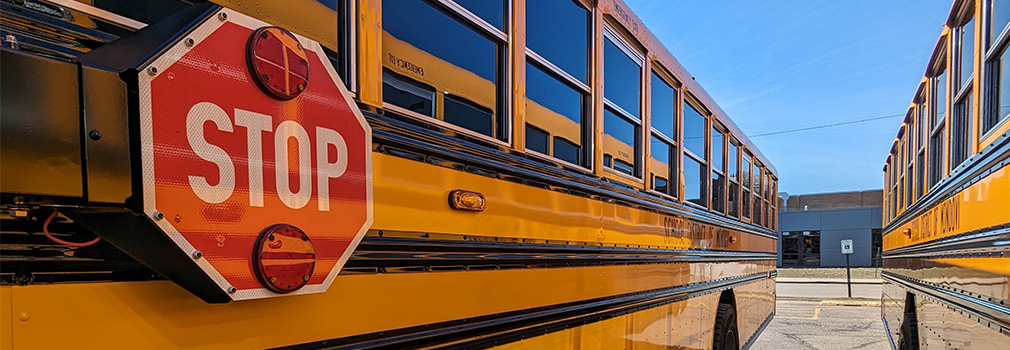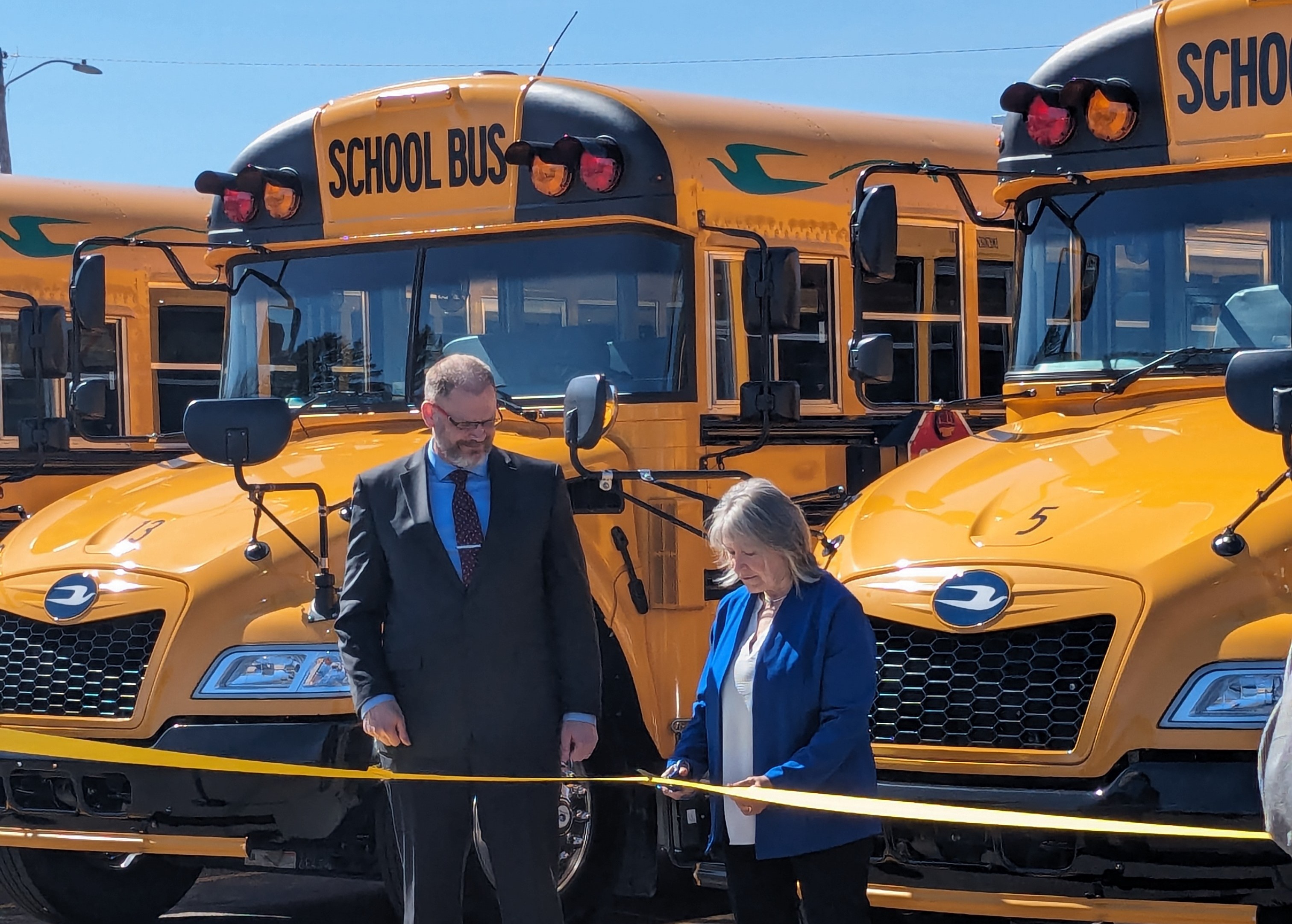Community Commitment
May 15, 2024
Wisconsin school district joins national rollout of electric school buses
Xcel Energy provides charging infrastructure and support

In Mondovi, Wisconsin, the wheels on the new school buses go round and round, but the buses are remarkably quiet – a stark contrast to the noisy diesel engines of the past.
That’s because the new buses in the Mondovi School District are electric – thanks to a $1.8 million Clean School Bus Grant from the U.S. Environmental Protection Agency (EPA). In total, 16 rural school districts in Wisconsin were selected for awards in the first round of the EPA program, including three in Xcel Energy’s service territory, as well as others across the company’s eight-state footprint.
To support the new electric buses, Xcel Energy, a key partner in the initiative, worked diligently to secure additional credits and rebates for the charging infrastructure. Ultimately, we were able to reduce the schools’ investment to just $13,000, a critical savings for rural school districts like Mondovi, where the transition to electric transportation is often hampered by not having the resources to build charging systems.
“Our involvement includes providing information, technical assistance, site visits during construction and maintaining a long-term relationship now that their system is up and running,” said Tim Bartels, commercial electric vehicle (EV) account manager at Xcel Energy. “Customers benefit from our expertise on both sides of the meter."
Xcel Energy, a national leader in the clean energy transition, started rolling out charging infrastructure and customer programs in 2020 to make it easy, convenient and affordable for customers and communities to adopt EVs. Xcel Energy built 100% of the EV charging infrastructure in Mondovi, including the standard utility distribution and secondary system.
That’s because the new buses in the Mondovi School District are electric – thanks to a $1.8 million Clean School Bus Grant from the U.S. Environmental Protection Agency (EPA). In total, 16 rural school districts in Wisconsin were selected for awards in the first round of the EPA program, including three in Xcel Energy’s service territory, as well as others across the company’s eight-state footprint.
To support the new electric buses, Xcel Energy, a key partner in the initiative, worked diligently to secure additional credits and rebates for the charging infrastructure. Ultimately, we were able to reduce the schools’ investment to just $13,000, a critical savings for rural school districts like Mondovi, where the transition to electric transportation is often hampered by not having the resources to build charging systems.
“Our involvement includes providing information, technical assistance, site visits during construction and maintaining a long-term relationship now that their system is up and running,” said Tim Bartels, commercial electric vehicle (EV) account manager at Xcel Energy. “Customers benefit from our expertise on both sides of the meter."
Xcel Energy, a national leader in the clean energy transition, started rolling out charging infrastructure and customer programs in 2020 to make it easy, convenient and affordable for customers and communities to adopt EVs. Xcel Energy built 100% of the EV charging infrastructure in Mondovi, including the standard utility distribution and secondary system.

Mondovi Superintendent Jeff Rykal and Deputy Clerk Shelly Teigen officially
welcomed five fully electric buses at a ribbon-cutting ceremony in March.
“We were the first utility in Wisconsin to have an EV program, and it’s truly remarkable to see a small rural school district like Mondovi leading the way with some of the first all-electric buses in the state,” said Brian Elwood, regional vice president of Customer and Community Services.
Mondovi Superintendent Jeff Rykal emphasized the financial benefits of the transition to electric buses. Considering the cost of gas and maintenance, the district expects to spend only 14 cents per mile – a significant reduction compared to the typical 49 cents required to operate conventional buses. And by leveraging the grant money, the district saved local taxpayers approximately $600,000, the cost it would have taken to purchase five diesel or propane buses.
Beyond the financial advantages, these electric buses contribute to cleaner air and improved health. Unlike diesel buses, which emit toxic exhaust, electric buses have zero tailpipe emissions. This feature significantly enhances air quality around schools and reduces exposure to harmful pollutants.
And as for the noise, or lack thereof, students no longer need to shout over a loud, rumbling engine when talking on the bus.
Find more information about EVs and our programs on the Xcel Energy website.


